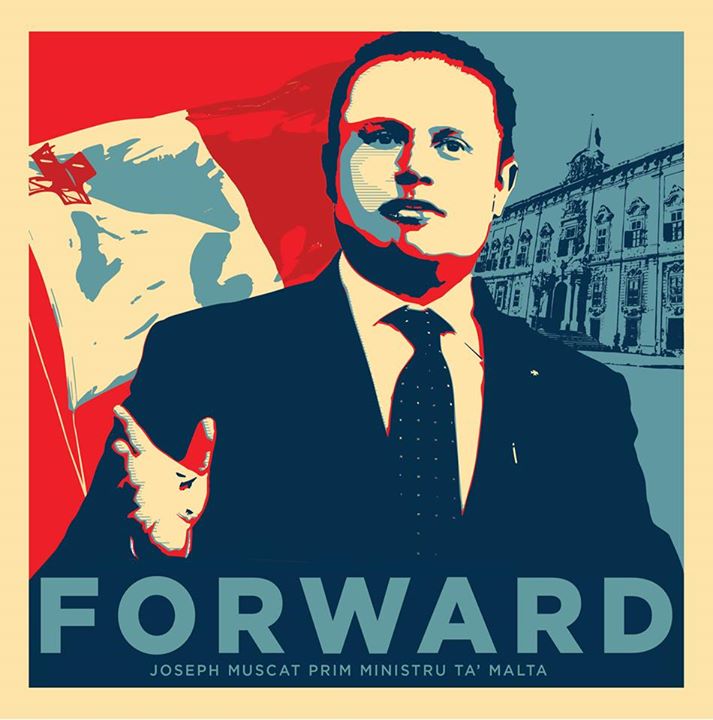H. P Baxxter’s guest post: Next stop, Malta
A few weeks ago, Malta’s deputy PM and Minister for Europe, the appropriately named – in this particular context- Louis Grech, briefly rose from the dead to say that the Greek proposals are a solid basis for negotiation. Then he wagged his finger a bit at Greece, and waxed lyrical about the need to restore the citizen’s trust in institutions.
As Grech spoke, panellist and former Super One hack Miriam Dalli looked on adoringly through her copious mascara. His office underling, the rising star Ian Borg, had done his own bit of grandstanding earlier.
The politicos were addressing a MEUSAC conference with the long-winded title “A new Governance for Europe – Strengthening the European Union Institutional Architecture and Democratic Legitimacy”, which was held at the Aula Magna of the Old University.
But what utter tosh.
A new governance for Europe. Democratic legitimacy. They’re fine ones to talk, with their record of unimpeachable governance since they swept to power in a silent coup.
Maltese politicians amaze me. They speak of the Greek crisis, and the problems that caused it, as if it was Something That Can Only Happen To The Others. If they knew their facts, they’d realise Malta itself is dancing on edge of the abyss.
Far from being the cradle of democracy, Greece is total newbie to the practice. It was ruled by the colonels’ junta up to 1974. Though we came damn close, Malta never had an actual military dictatorship. There the distinctions end, and the similarities begin.
The Metapolitefsi that followed was characterised by the kind of sham democracy with which the Maltese are only too familiar. A two-party system of institutionalised corruption was set up. In 1981, a naive EU let Greece in. And with new money and new markets came new corruption, at which PASOK excelled.
The Greeks even have a name for it: ‘rousfeti’ (political clientelism) and ‘fakelakia’ (bribery).
Ring any bells? It should. We call them haxi and buqxiex.
In 2002, Greece joined the Eurozone. The Greek government pumped more subsidies in the direction of the richest Greeks, the ship-owners. Just like the Maltese government and the kuntratturi, the Greek government was convinced that the ship-owners deserved to be showered with favours because they kept the economy going.
In 35 years of power, PASOK and Nea Dimokratia created a web of grace-and-favour appointments everywhere. Tsipras deserves some credit for going after the Iced Buns. In five months, he halved the number of government vehicles, reduced government staff at the Maximos by a third, and fired 40% of the PM’s staff.
Corruption and clientelism were only part of Greece’s problem. The other was a lopsided economy almost completely reliant on tourism, with much wealth tied up in real estate, including some €13 billion worth of public funds for the Oympic Games. Most of the stadiums are now overrun with weeds. The bailout and reform package fails to address this issue.
Joseph Muscat and ‘Professor’ Edward Scicluna never said anything about this. Of course they wouldn’t. Malta’s economy looks a lot like Greece’s.
Yes, there is the services sector besides the €88 million state guarantee for a private company’s bank loan (which effectively amounts to freezing the people’s assets), real estate and tourism. But productivity and economic value added remain low. Alarmingly low.
Maltese governments have done little to tackle the issue. Like Greece, Malta’s real labour productivity per person employed has gone down since 2010. Behold the effect of an unemployment rate kept artificially low.
If the Greek crisis has taught us anything, it’s that the economy is a delicate, complex system that should never be left to charlatans.
In a couple of years, Malta could be facing its own crisis. We needn’t worry when that happens, for the Prime Minister will Tweet us about it.

